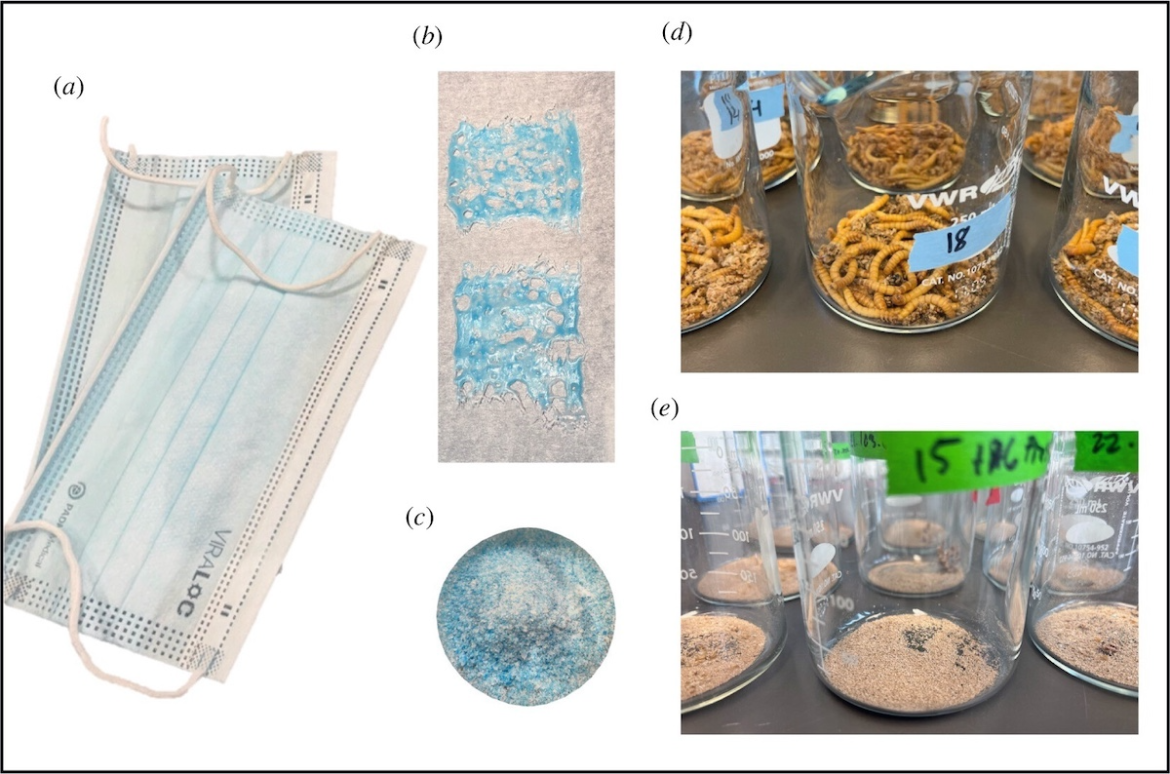
Figure 1. Photos of (a) the polypropylene (PP) face masks used in the study, (b) two individual face masks after melting and (c) multiple face masks after melting and grinding. (d) Twenty mealworms were placed in each replicate 250 ml beaker and fed a mixture of face mask and wheat bran, or just wheat bran. After most of the food mixture was eaten, (e) mealworms were frozen and mealworm frass (shown in the photo) was dissolved and searched for egested microplastics.
UBC News - Dec 4, 2024, by Alex Walls: Can plastic-eating bugs help with our microplastic problem? UBC researchers fed mealworms ground-up face masks mixed with bran and found that the bugs excreted a small fraction of the microplastics consumed.
Press
Global news (video): Are mealworms nature’s answer to the world’s microplastic problem?
Science News: Here’s how long it would take 100 worms to eat the plastic in one face mask
------------------
Abstract
The widespread distribution of microplastics (MPs) in the environment has motivated research on the ecological significance and fate of these pervasive particles. Recent studies have demonstrated that MPs may not always have negative effects, and in contrast, several species of Tenebrionidae beetles utilized plastic as a food source in controlled laboratory experiments. However, most studies of plastic-eating insects have not been ecologically realistic, and thus it is unclear whether results from these experiments apply more broadly. Here, we quantified the ability of mealworms (Coleoptera: Tenebrionidae) to consume MPs derived from polypropylene and polylactic acid face masks; these are two of the most commonly used conventional and plant-based plastics. To simulate foraging in nature, we mixed MPs with wheat bran to create an environment where beetles were exposed to multiple food types. Mealworms consumed approximately 50% of the MPs, egested a small fraction, and consumption did not affect survival. This study adds to our limited knowledge of the ability of insects to consume MPs. Understory or ground-dwelling insects may hold the key to sustainable plastic disposal strategies, but we caution that research in this field needs to proceed concomitantly with reductions in plastic manufacturing.